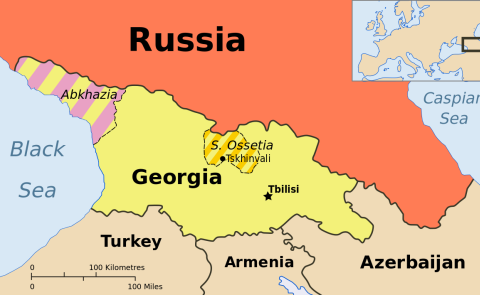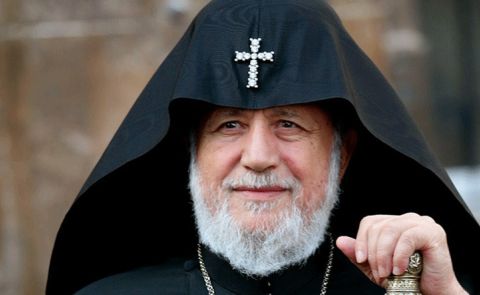
Zalkaliani-Lavrov meeting: results and reactions
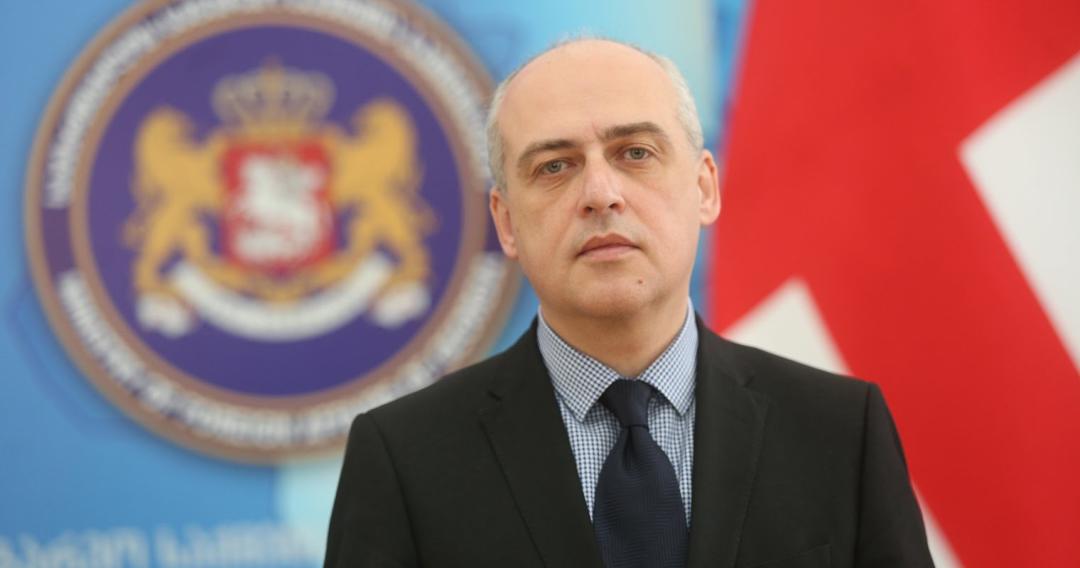
On 24 September, the UN General Assembly (UNGA) started its 74th session with the topic “Galvanizing multilateral efforts for poverty eradication, quality education, climate action and inclusion.” The Georgian delegation was represented at the session by President Salome Zurabishvili and Minister of Foreign Affairs David Zalkaliani. On the sidelines of the conference, a historical event took place, as Zalkaliani met with his Russian counterpart Sergey Lavrov for the first time since the Georgian-Russian war in 2008.
The meeting between Zalkaliani and Lavrov was facilitated by the Swiss delegation as part of its Good Offices. From March 2009, Switzerland has been actively representing the interests of Russia in Tbilisi and the interests of Georgia in Moscow. A day earlier, Lavrov signalled the easing of tensions between the two countries (Caucasus Watch reported).
At the meeting the Georgian side raised the issue of de-occupation of its regions of Abkhazia and Tskhinvali (South Ossetia). Zalkaliani and Lavrov also spoke of the recent developments in the occupied regions, as well as the "problematic issues of Georgia-Russia relations". The Russian Foreign Ministry also said in its statement that the Georgian and Russian FMs discussed the issues of bilateral agenda, as well as the regional security issues.
Afterwards in an interview with Imedi TV, Zalkaliani said that he received a promise from the Russian official that both the Geneva International Discussions as well as the Prague economic talks will continue, despite Russian Deputy Foreign Minister Grigory Karasin’s resignation. He also said that at the meeting he directly told Lavrov that “it is necessary to make steps for de-escalat[ing]… the situation and de-occupation” of Abkhazia and Tskhinvali. “Without their political will it will be impossible to achieve the progress, because it is the[ir] power exercising effective control on those territories,” he said referring to Russia. Zalkaliani also noted that he spoke with Lavrov regarding all of the steps that Georgia has made as part of its peace policy and underscored that it is important that Russia should also make constructive counter steps.
Positive signals also came from Russia on the same day. In relation to Lavrov’s statement on the lifting of sanctions, Dmitry Peskov, Spokesperson of the President of the Russian Federation Vladimir Putin also expressed his hope on behalf of the government about the launch of all the necessary preconditions for lifting the flight ban, imposed by Russia to Georgia in June. “Air traffic has been suspended and not canceled forever. Thus, we hope that all the necessary preconditions will be launched in the due time for resuming the flights,” he stated.
Prime Minister of Georgia Giorgi Gakharia stressed his support for the meeting, hoping that it would contribute to solving the most complex problems between Georgia and Russia. “International law and, of course, close cooperation with our partners is the only way to solve this problem. And it is in this spirit that this meeting has been conducted in sync with our international partners. And it is from today’s perspective, September 27, that we must understand that war is not a solution, we must understand that pragmatic policy is the platform to communicate with everyone in order to set the stage for our country’s unity and democratic development,” he said.
Other Georgian officials highlighted the substantive nature of the talks. Zurab Abashidze, the Georgian special representative for relations with Russia said that the Georgian delegation “has received a message” from its western friends at the UNGA session that “direct communication with Russia is necessary”. Strategic Communication Advisor to the Prime Minister Irakli Chikovani reiterated that Georgia has received “a number of recommendations” from its international partners to have such communication with Russia. He said it is too early to speak of any following opportunities and outcomes of today’s meeting. He said the meeting was prompted by the existing “tense situation” in occupied regions. He also stated that all of Georgia’s partners agreed that the Geneva International Discussions (GID), the only international format addressing the security and humanitarian situation in the occupied regions, “has been practically suspended and no decisions are being made”.
The Georgian opposition on the other hand called Zalkaliani to explain to parliament why he conducted the meeting in the first place. Opposition United National Movement lawmaker Roman Gotsiridze stressed his plans to invite Zalkaliani to parliament on a committee hearing to ask in detail the reason and reasonability of his meeting with Lavrov. Gotsiridze considers that it is inadmissible to hold such meetings “secretly from public”. Zalkaliani was accused by Gostridze that he did not previously consulted with the legislature and the public before engaging in talks with Lavrov.
Internationally, the meeting was widely praised. “The meeting between the Minister of Foreign Affairs of Georgia, David Zalkaliani, and the Minister of Foreign Affairs of the Russian Federation, Sergey Lavrov, was an important opportunity to discuss regional security issues, to lower tensions in Georgia-Russia relations, and to address the impact of these tensions on citizens. Dialogue is key for peaceful dispute settlement, which the European Union fully supports,” read the statement released by Spokesperson for Foreign Affairs and Security Policy/European Neighbourhood Policy and Enlargement Negotiations Maja Kocijancic. OSCE Chairman Miroslav Lajcak tweeted that the meeting “shows there is hope that constructive dialogue can decrease tensions”. Antonio Guterres, Secretary General of the UN, stated that he welcomed the meeting held between Zalkaliani and Lavrov. “We support Georgia’s sovereignty and territorial integrity and urge Russia to end its illegal occupation and decrease tensions” read the statement released by the US Embassy in Georgia.
See Also

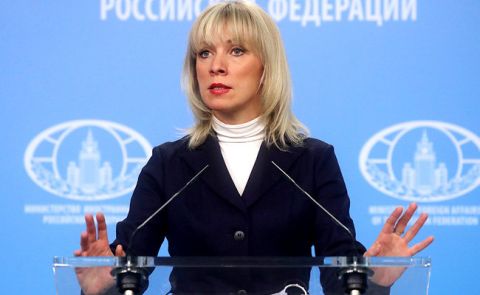
Maria Zakharova Warns Azerbaijan to Respect Russia’s Sensitivities on NATO Expansion, Criticizes EU Mission in Armenia
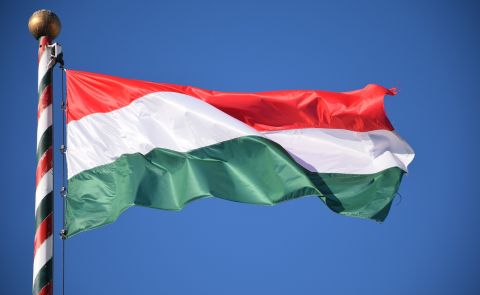
Hungary Provides Expert Assistance to Georgia’s EU Integration Process
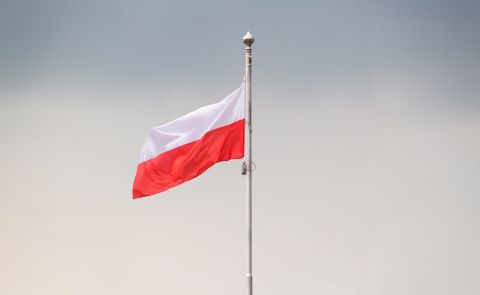
Donald Tusk Proposes Suspension of Visa-Free Travel for Georgia
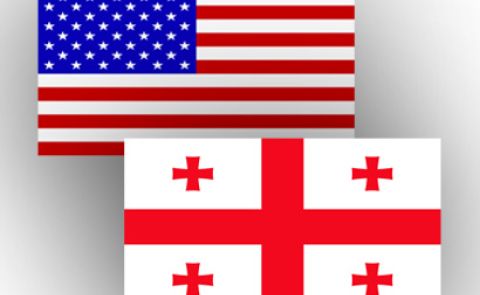
Georgia Has a New Ambassador to the United States
